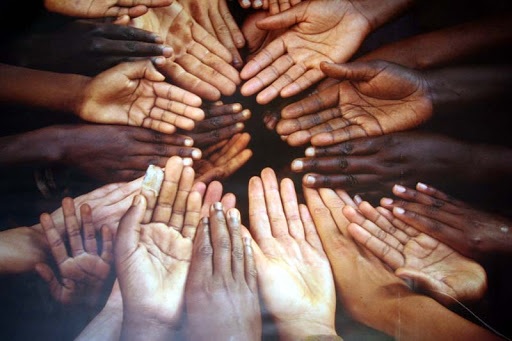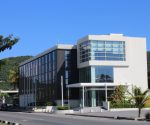A People In Solidarity – Part 1

Solidarity is defined as: unity or agreement of feeling or action, especially among individuals with a common interest; mutual support within a group.
In a recent article by Kathryn Jean Lopez for the National Review, she said ‘to stand in solidarity with the vulnerable is to become vulnerable’.
The people of St. Maarten, like people all over the world right now are vulnerable. Vulnerable to disease and death and vulnerable to the certain economic recession this pandemic will bring in the months and years to come. The number of deaths have shown the absolute poor state of our health care system. With 37 positive cases of COVID-19 confirmed we are at 6 deaths, a 16.22 death rate for confirmed cases. By contrast Germany with more than 100,000 laboratory-confirmed cases has 1584 deaths with a death rate of 1.6 percent. In South Korea, another model in the handling of this virus the fatality rate stands at 1.8 percent. Italy has a death rate of about 12 percent and Spain, France and Britain stand at 10 percent. Now we can argue that we cannot compare tiny St. Maarten to large, developed, wealthy nations so let us compare closer to home. At present Dominica, tiny, under- developed nation ravaged by Erica and Maria in recent years, at present has 14 cases with 0 deaths. Antigua has 15 cases with 0 deaths. Barbados has 56 cases with 1 death for a 1.79 death rate, Martinique has 149 cases with 4 deaths – a 2.68 death rate. While there are certainly many factors contributing to these numbers and yes these numbers will surely change, it is a glaring comparison. A comparison that questions the state of our health care system, and the timeliness and adequacy of our response to this pandemic.
Germany is being looked at as an anomaly, experts all over the world are inquiring about their methods. What they have found is a strong public health care system that was well prepared – so much so that they are now accepting patients from Spain and Italy. Germany has also performed more testing than any other country in the world. The most important factor though is the effective leadership displayed leading up to and during the crisis; clear, calm communication along with strict rules on social distancing. Additionally an early stimulus package certainly helped to alleviate fear and anxiety. Because of this the population has trust in their government and the Germany chancellor’s approval ratings have soared
This bring us to another comparison; in one of her recent press briefings the Prime Minister of St. Maarten stated that the EOC (Emergency Operations Center) had their first meeting in the first week of March. On Monday March 16th, there was an update on the official government website of a meeting held with the Dutch and French counterparts. After this meeting an emergency meeting took place with the full EOC – a quote from the release states ‘In this meeting, the EOC deliberated and drew the conclusion that stakeholder consultations needed to take place before more far-reaching decisions could be made. ESF coordinators will provide advice on school closures and other relevant restrictions to Prime Minister Jacobs tomorrow.’
This was on March 16th, a time when countries all over the world were already engaged in critical preparedness and response to the COVID-19 virus. We saw the roll-out of restrictions put in place by the Prime Minister where it took almost three weeks to determine which businesses were essential or non- essential; almost three weeks to determine should we close the barbershops or should we re-open them or should we close them again. And while our French counterparts shut down schools and imposed restrictions on movement, we continued to allowed free cross border movement and waited for the first case in order to act.
On April 2nd via a release in The Daily Herald the Prime Minister stated ‘that the country is continuously assessing new ways to source capacities and resources that it has locally and has been trying to partner with various stakeholders and businesses to see how to identify a location for quarantining and, where necessary, for isolation units. “An isolation space has been identified to house COVID-19- positive patients which we expect to start populating as of tomorrow in order to ensure isolation of these cases,”’ On April 2nd the government has just identified a location place for quarantining. Let that sink in.
Also on April 2nd the Prime Minister announced some ‘good news’ – ‘testing for COVID-19 will be ramped up as the country now has the ability to test locally’. Yet on Sunday April 5th per SMN-News, epidemiologist Eva de Weever said that ‘test kits are limited and that persons who develop symptoms while in confinement will be tested. She said at the moment there are not sufficient kits to test everyone.’ Again let that sink in.
In her press conference on Sunday April 5th, the Prime Minister appeared to be rushed, even annoyed at times. This was confirmed when she later stated that the press conference should have been over more than an hour ago because she had to be at the airport to receive the plane delivering medical equipment and additional beds to the island. With a deputy prime minister, a health minister and other members of the EOC the Prime Minster felt it necessary to rush an address to the nation in order to receive medical equipment and stage a photo-op at the airport. And as the days go by the rest of government becomes more quiet – the 15 new parliamentarians and the 7 new cabinet members who were literally just all over the place pre-election are all but absent now. From the outside looking in there seems to be no cohesion in the coalition or in government as a whole. No solidarity, no all hands on deck approach and certainly no recommendations on how to handle this pandemic.
But I guess fear not because today April 6th our leaders have made a bold move, one that is sure to make all our lives better. I’m not sure if it’s a lot better, a little better or just somewhat better; but better it will be, because our leaders past and present have generously decided that in solidarity with the people, they are giving up 10% of their salaries.
Remember as stated above, ‘to stand in solidarity with the vulnerable is to become vulnerable’. For our dear leaders becoming vulnerable means living not on approximately Nafls 20,000 per month plus additional allowances and car and telephone expenses; but on a paltry, measly, worthless Nafls 18,000 (20,000 – 10%) per month.
The Writer wishes to remain Anonymous
###
Related articles:
A People In Solidarity – Part 2
Opinion piece: Madness without borders
Ministers and MPs agree to salary reduction
Update from the Prime Minister: SMMC receives medical equipment
Dutch fly in medical assistance























